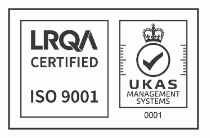Financial Technology (FinTech) represents a dynamic sector focused on modernising, as well as innovating traditional financial services through creative and cutting-edge solutions. Its aim is to enhance user experiences and efficiency in financial transactions and services, as well as develop outside-the-box innovations.
This involves the development and application of technologies such as mobile banking, online payments, integration of blockchain to streamline operations across various platforms, making financial management more accessible and tailored to individual needs. FinTech’s growth signifies a shift towards more inclusive and user-centric financial ecosystems
In the rapidly changing financial landscape, marked by global economic shifts and technological advancements, traditional banking and financial services began to show their limitations, particularly highlighted by the financial crises and the digital revolution of the late 2000s and early 2010s. The advent of FinTech was catalysed by the need for more adaptive, secure, and customer-oriented financial services, pushing for innovations such as digital payments, peer-to-peer lending, and financial management apps. These changes reflect a broader trend towards automation, digitalisation, and the necessity for financial literacy and flexibility in a world where financial technologies play a central role in both personal and commercial domains.

According to the EU Digital Finance Platform there are at least 4,300 companies involved in the industry, while Statista estimates that there are at least 10,000 FinTech firms active in Europe. 2021 was a bumper year for investment in the sector, with roughly €26 billion having been invested. While this figure has dropped markedly in 2023, it is still one of the leading growth sectors on the continent.
FinTech has been one of the key sectors the EU has been focusing on in order to ensure the member states have a competitive edge. It has pushed through key regulations and initiatives aimed at promoting innovation while ensuring consumer protection and financial stability. The Second Payment Services Directive (PSD2), which came into force in 2018, opens the banking industry to third-party providers to foster competition and innovation in digital payments. The Digital Finance Package, introduced in 2020, aims to harmonise the digital finance landscape across the EU, focusing on innovation, stability, and consumer protections, particularly in relation to digital currencies and assets. Additionally, the EU is working on a Digital Finance Platform to enhance collaboration within the FinTech sector, aiming for a more integrated and innovative financial ecosystem.
While presenting some challenges, Brexit has created an opportunity for the EU to redefine its FinTech landscape. By attracting talent and investment from some FinTech firms previously centred in the UK, the EU could strengthen its position as a global FinTech hub. To achieve this, the EU will need to focus on providing clear and consistent regulations, like those outlined in the Digital Finance Package, and fostering a more integrated market for FinTech businesses to operate in.

Overall, the EU’s approach to FinTech balances innovation with necessary protections, aiming for a competitive and integrated financial market.
There are several funding opportunities made available by the EU and its institutions which open the door to FinTech, such as in the Horizon Europe programme and EIC Accelerator among others. Furthermore, one may also find opportunities related to FinTech through Erasmus+ where one may look to further the knowledge and skills of individuals in the sector. There are also a number of events being hosted by the EU Digital Finance Platform which are of note to any and all interested in the sector.
AcrossLimits has increasingly been getting involved in proposals concerning FinTech, and is part of an ongoing project known as Fintech Investor Network and Ecosystem (FINE). The project aims to create more inclusive and connected networks between Fintech ecosystems on a local and international level, by promoting collaboration between investors through coinvestment for Fintech startups.
If you have a project idea for which you’d like to make use of funding available to bring it to life, then be sure to get in touch. With 20+ years of experience in funding procurement and participation in over 80 successful EU projects to date, AcrossLimits has a dedicated and experienced team that can help you draft proposals and apply to EU funding opportunities. With our expansive network spanning both the private and public sector as well as academia, we’re in pole position to cater to your needs.
To learn more about how we can help you make your project idea a reality, contact us at: [email protected].



